Covid-19: Nisra records highest ever weekly deaths
 Getty Images
Getty ImagesNorthern Ireland's statistics agency has recorded its highest weekly Covid-19 related registered deaths since the pandemic began.
Nisra said 145 deaths were registered in the first week of 2021, although administrative delays over Christmas may have affected the number.
That brings the agency's death toll to 1,976 by 8 January.
The figures come as the chief medical officers from NI and the Republic issued a joint stay-at-home plea.
Dr Michael McBride and Dr Tony Holohan said they were "gravely concerned" about the "unsustainably high level of Covid-19 infection" across the island of Ireland.
Concern was raised in the Republic of Ireland this week as figures showed it has the world's highest number of confirmed new Covid-19 cases per million people.
On Friday evening, the Irish Department of Health reported 50 further deaths with Covid-19 and 3,498 new cases of the virus. More than half (54%) of those newly diagnosed are under the age of 45.
Northern Ireland is in the third week of a six-week lockdown, with ministers scheduled to review measures next week.
However, health officials have warned that an extension of the restrictions could be required to reduce pressure on the health service.
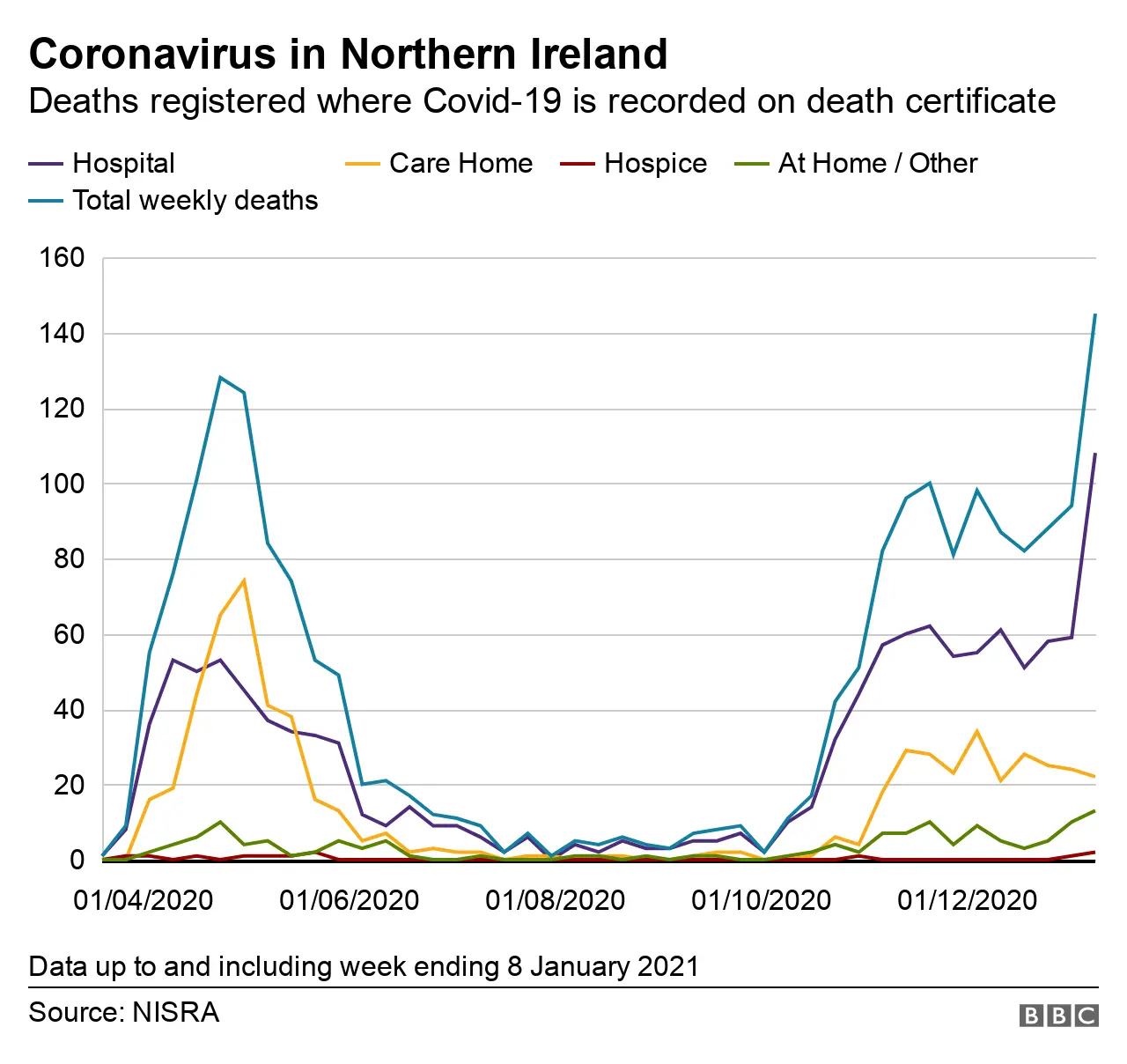
Of the 2,019 deaths recorded by Nisra by 8 January, 1,247 (62%) occurred in hospital, 622 (31%) in care homes, 12 (0.6%) in hospices and 138 (7%) at residential addresses or other locations.
People aged 75 and over account for just over three-quarters of all Covid-19 related registered deaths (77.6%) between 19 March 2020 and 8 January 2021.
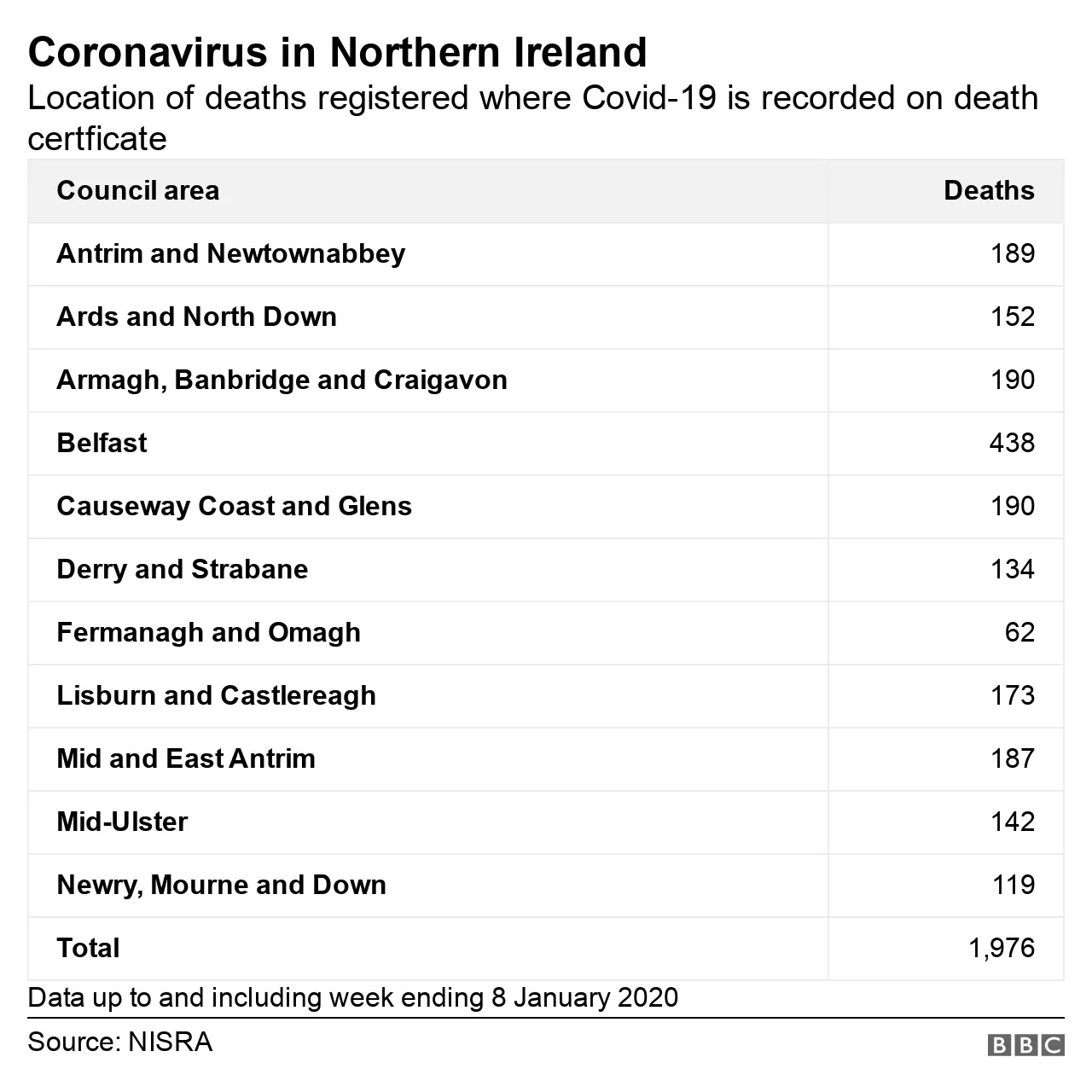
Just over a fifth (22.2%) of all Covid-19 related registered deaths have been of people with an address in the Belfast council area.
Meanwhile, the Department of Health reported 26 further Covid-related deaths on Friday.
Five of these deaths did not occur in the past 24 hours.
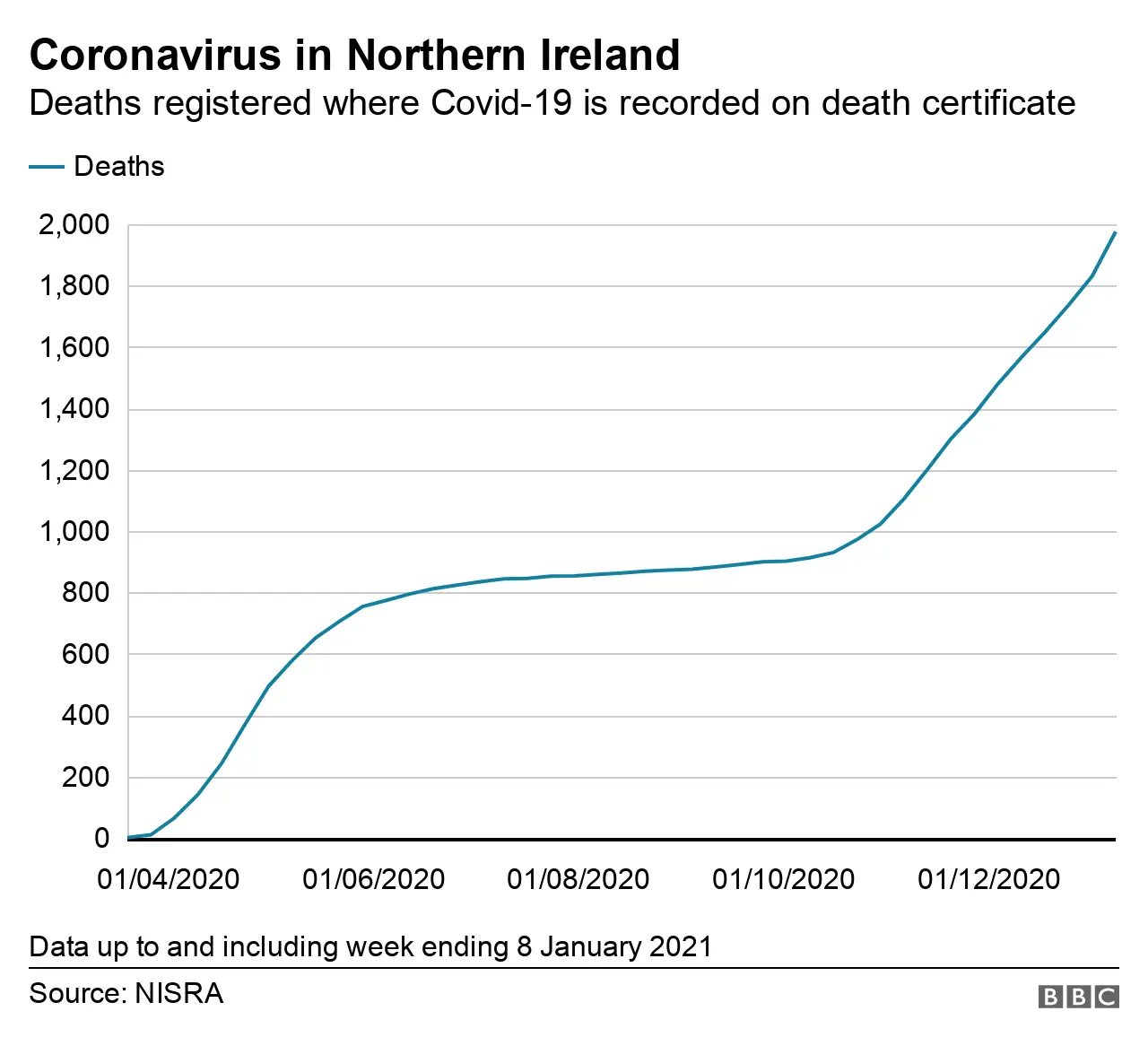
The Department of Health bases its figures on a positive test result being recorded, whereas Nisra figures are based on mentions of the virus on death certificates, so people may or may not have been confirmed to have contracted the virus prior to death.
A further 1,052 individuals have tested positive for Covid-19 and 63 patients are being treated in intensive care units, 47 of whom are on ventilators.
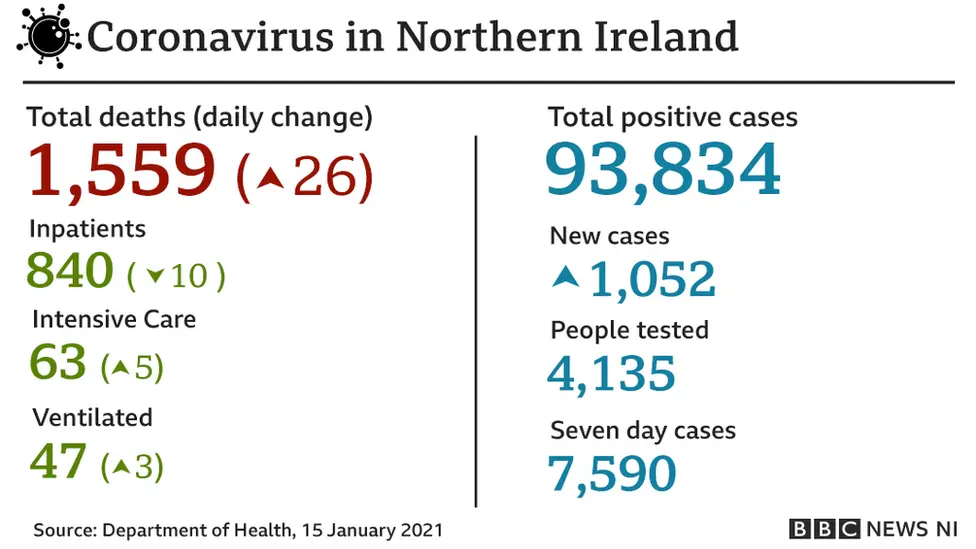
'Protect one another'
The chief medical officers warned the high infection rate was having a "significant impact" on the health of the population and the "safe functioning" of the healthcare systems.
They said the public should avoid all unnecessary journeys, including cross-border travel.
Pointing out that many of the patients admitted to hospital in January have been younger than 65, they warned coronavirus could affect anyone, "regardless of age or underlying condition".
"It highlights the need for us all to protect one another by staying at home," said the medical officers.
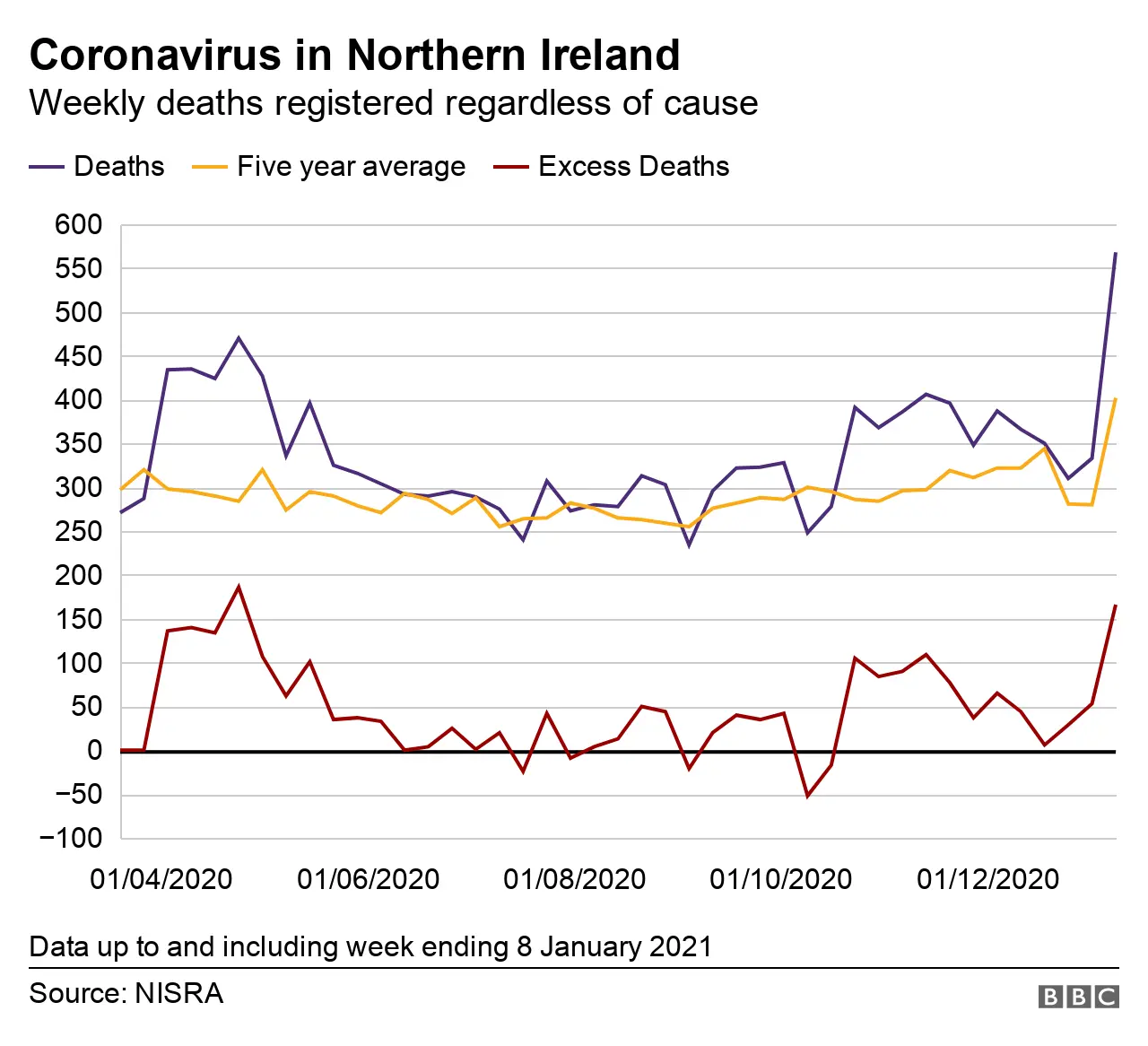
Northern Ireland's spike in infections has been put down to an easing of restrictions over Christmas.
Asked if he regretted being part of the decision to ease restrictions, Health Minister Robin Swann said the executive had tried to be balanced in its approach.
"I regret the pressures we see now in our hospitals, but let's remember it's caused by this virus, we have it in our power to bring it back under control and get us back to where we were in the summer," he told BBC News NI on Friday.
Mr Swann pleaded with people to follow the current restrictions.
"We're in the middle of a very tough six-week scenario, and how we come out of this will be a more graduated approach to make sure we get the benefits of what we've already done, and also the benefits of the vaccine."
